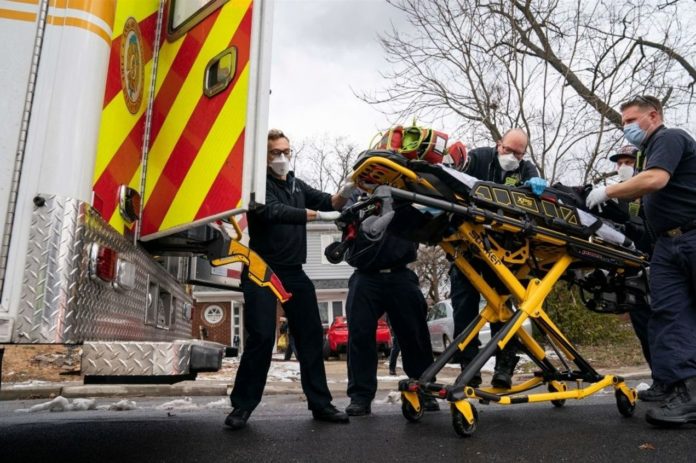Antibodies against Covid-19 are usually neutralizing antibodies; however, a new study suggests that non-neutralizing antibodies may also play a role in providing protection.
The scientific community has focused on neutralizing antibodies, which inhibit the virus’s spike protein from adhering to the surface protein on human cells, in order to develop vaccines and treatments.
“Non-neutralising antibodies could also provide protection. This would mean that we have broader protection from antibodies than previously thought, making us less vulnerable to mutations of the virus. It warrants further investigation,” said Pontus Nordenfelt, lead author.
A significant effort led by researchers at Lund University examined in further detail how the immune system combats the virus in Covid-19 patients using phagocytosis, the capacity to absorb foreign particles.
Phagocytosis is a cleansing mechanism in which immune system players target and consume possible threats such as bacteria or viruses, and this technique is accelerated if the dangerous material is identified by an antibody. The findings, which were published in a special issue of Frontiers in Immunology, suggest that non-neutralizing antibodies may also be critical in the fight against Covid via this route.
“We observed that many of the antibodies that develop in response to Covid-19 are opsonising, i.e. they signal to the immune system’s phagocytes to ingest the virus. Our results indicate that non-neutralising antibodies, so long as they are able to opsonise, are also able to provide an effective response to the virus,” added Pontus Nordenfelt.
Experiments on mice show that non-neutralizing antibodies protect the animals from Covid-19 infection.
Additionally, the researchers discovered that the concentration of neutralizing antibodies had an effect on the phagocytosis process.
From the blood of recovered Covid-19 patients, the scientists found and extracted immune system cells. They used a variety of techniques to map which immune cells interact with the virus’s spike protein and to identify the antibody binding sites on those immune cells. The researchers next used flow cytometry to investigate how these antibodies affect phagocytosis.
The researchers used micrometer-sized beads coated with the spike protein to evaluate how the dosage of neutralizing antibodies affected phagocytosis.
Opsonization is an immune system mechanism that causes a greater phagocyte response when bound antibodies grow. Surprisingly, even at low antibody levels, maximal opsonization can be attained. Aside from that, the researchers noticed a decrease in the effect. Even though phagocytosis dropped, antibody-binding increased linearly, suggesting that the spike protein is responsible for the reduced phagocytosis.
To make sure it wasn’t due to anything else, the researchers repeated the experiment, but this time using solely monoclonal antibodies. This meant that instead of the usual mix of thousands of antibodies, only one type of antibody (clone) was employed.
“It showed the same trend. Up to a certain level, there is a linear dosage effect from the antibodies. After that, it dips. Basically, when you give a dose that is too high you don’t get the protective effect,” added Wael Bahnan, first author of the study.
“It looks like something is happening to the spike protein that results in reduced interaction with the white blood cells, leading to the immune system no longer binding to and neutralising the virus through phagocytosis. Similar phenomena have been described as the prozone effect and have been reported in experiments with pneumococcus and malaria. However, it has not been linked to reduced phagocytosis, so it is not certain that the effect relates to what we are observing in our experiments,” concluded Wael Bahnan.
Source: 10.3389/fimmu.2021.808932
Image Credit: Getty
You were reading: Binding antibodies can also protect against Covid
